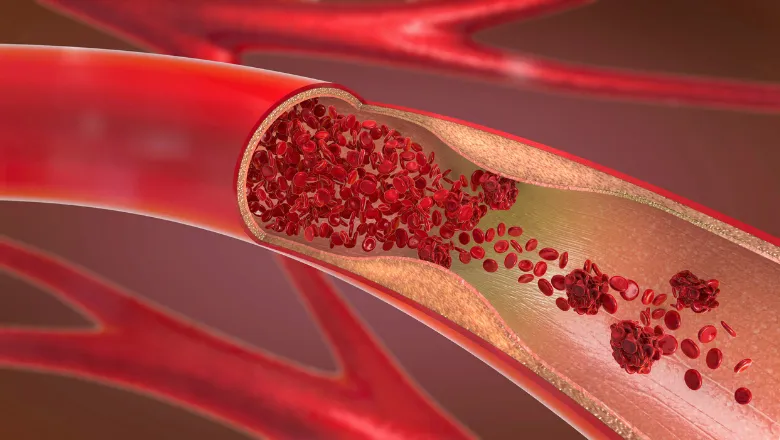The way everyone has come together for the same goal really shows the power of our research collective in understanding the impact that COVID-19 has had on vascular services.
Prakash Saha, Senior Clinical Lecturer, School of Cardiovascular Medicine & Sciences
10 July 2020
Faculty researchers investigate the worldwide impact of COVID-19 on vascular surgery
Researchers from the School of Cardiovascular Medicine & Sciences have been working on a worldwide study to quantify the effect of the COVID-19 pandemic on vascular patients.

The current pandemic is having a profound impact worldwide, especially in specialities such as vascular surgery, where both elective and emergency services have been forced to adapt. Many vascular patients are at high risk of COVID-19 mortality, and balancing risk of exposure to the virus with treatment of their underlying vascular pathology, has been a challenge.
A group of researchers from the School of Cardiovascular Medicine & Sciences, led by Prakash Saha, have been working to understand and evaluate the effect the pandemic is having on vascular service provision, practice and patient outcomes across 53 countries.
Over 150 researchers are involved in the study, including those from the Vascular Endovascular Research Network, a multidisciplinary collaborative for those interested in the care of individuals with vascular conditions.
The COVID-19 Vascular Service Study (COVER) opened at the end of March when the pandemic was at its most critical point. Centres who choose to take part are encouraged to fill the survey weekly so the team can gain a picture of changes to services.
The research is divided into three tiers:
- Changes to unit level processes
This stage involves regular repeated team surveys to capture changes to the structure and delivery of services at a unit level through the pandemic – e.g. changes in surgery, deployment of team members to other specialities, availability of personal protective equipment.
- Procedural data capture
This stage involves three months of data capture on all vascular and endovascular interventions undertaken at a unit level throughout the pandemic – e.g. surgical outcomes of patients. Following up at six and 12 months will link changes in practice to condition specific morbidity and mortality.
- Changes to vascular care
This stage involves one month of data capture to identify how management of vascular cases has changed throughout the pandemic and what new types of presentations patients are coming to the units with – e.g. skin conditions, blockages. Following up at six and 12 months will present outcomes for patients who would normally have undergone a surgical procedure prior to the COVID-19 outbreak.
The team has found that there is a clear appetite among healthcare providers, policymakers, governments, and major international institutions for research around the pandemic, and it is anticipated that COVER will go some way towards understanding vascular patient outcomes.
The Tier 1 study has just been accepted for publication in the British Journal of Surgery, while findings from this study are assisting government guidance on what vascular services should resume, and when, as well as how to adapt these services. This data will also add to our understanding of the effect that public health emergencies have on patients and healthcare systems should a future crisis occur.
Prakash Saha, Senior Clinical Lecturer, School of Cardiovascular Medicine & Sciences

